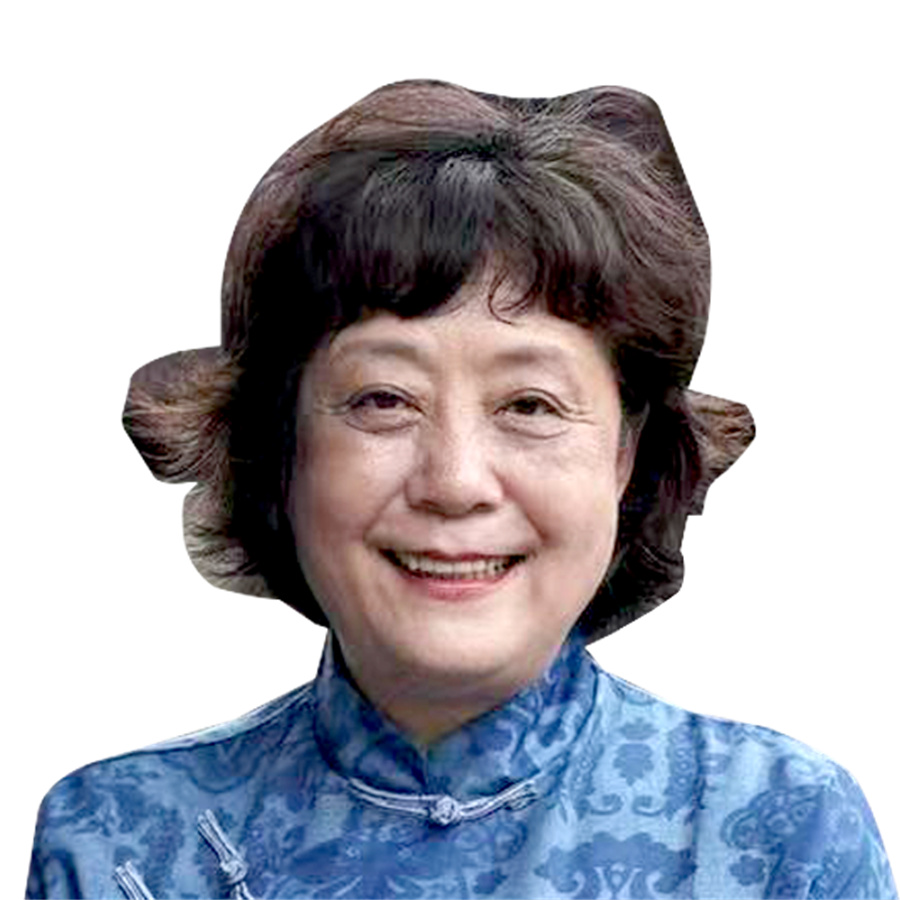Fluent foreigners spread the word on dialects
Skilled speakers of Shanghai's different language forms attract followers, promote understanding


Conveyor of culture
Ding Dimeng, a Shanghai dialect expert and a retired associate professor of Chinese at Shanghai University, has written several books on the Shanghai dialect. Some include fun features such as games, riddles, tongue-twisters and poems, which have helped make them bestsellers.
Ding has been teaching Mandarin and the Shanghai dialect to Chinese and overseas students for three decades.
"Over the past 20 years, we have seen an increasing number of foreigners becoming interested in learning the Shanghai dialect," Ding said. Compared with Mandarin, foreigners can usually acquire the Shanghai dialect faster, as the pronunciations are easier for them, she added.
Foreigners are motivated by many reasons, including doing business locally, to learn Shanghainese. However, some of them are intrigued by the unique and pleasing tones of the dialect. It also helps them better fit into life in Shanghai, Ding said.
Spaniard Mario Alonso, a pianist who has lived in Shanghai for seven years, said it would be a waste of time to live in China without immersing himself in the local culture.
He taught himself Mandarin, and is reasonably fluent, and now hopes to pick up some Shanghainese colloquialisms. One expression he finds intriguing is "your forehead touches the ceiling", which is a way to describe a rare and lucky incident, such as winning the lottery.
After the release in December of Blossoms Shanghai, the hit television series of Hong Kong director Wong Kar-wai, the Shanghai dialect has attracted even greater attention.
Ding is pleased to see the positive reaction, as well as foreigners sharing their dialect skills on social media.
"We used to have TV programs promoting the Shanghai dialect — and even speech competitions in the dialect — which were open to expats in the city. I think they (foreigners who speak the Shanghai dialect) are a positive influence on both domestic and overseas audiences," said Ding.
She welcomed foreigners learning the dialect as well as Shanghai people, both at home and abroad, promoting it.
"This is not only about the language, but also about Shanghai's culture and Chinese culture, as a dialect is the carrier of local cultures," Ding said.
Zheng Zheng and Zhang Kun in Shanghai contributed to this story.
- More aftershocks expected following deadly Xizang earthquake
- HKSAR chief executive mourns victims of Xizang 6.8-magnitude quake
- Milestones in China's high-speed railway development
- All-China Women's Federation raises over 13 million yuan for quake relief in Xizang
- China's lithium reserves rank second in the world
- China Coast Guard patrols around Diaoyu Dao





































